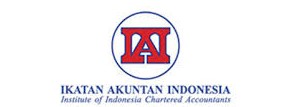Analisis Akuntabilitas Kinerja Sekolah dari Perspektif Teori Pemangku Kepentingan
Abstract
This research explains on how a school accounts for its performance due to to comply its accountability to its stakeholders. Meanwhile, the purpose of this study is to enrich stakeholder theory discourse on the application of performance measurement in schools. This is a case study research by using qualitative approach. A private high school in the East Jakarta to be a case. Data is collected through documentation and interviews with the principal, two vice principals and an officer of school public relations. This study finds (1) the stakeholders of private school consist of the government, the school foundation, and parents. (2) The school conducts performance measurement as a tool for complying school’s accountability. (3) School prepares some reports in term of learning resources, financial resources, and asset management to report school’s performance for its stakeholders. (4) As school managing the three types of resources, it creates value, namely the excellent level of students’ academic and non-academic quality. This paper concludes that using performance measurement and report it to its stakeholder for complying accountability is a form of school’s interaction with stakeholders. This relationship is significant for school to attain its value in delivering education service.
References
Alirafi, I., & Aisyah, M. N. (2020). Analisis Pengukuran Kinerja Dengan Pendekatan Balance Scorecard Pada Sekolah Pondok Pesantren Modern Bina Umat. Jurnal Profita: Kajian Ilmu Akuntansi, 30(3). https://journal.student.uny.ac.id/index.php/profita/article/view/16872%0Ahttps://journal.student.uny.ac.id/index.php/profita/article/download/16872/16288
Dobija, D., Górska, A. M., & Pikos, A. (2019). The impact of accreditation agencies and other powerful stakeholders on the performance measurement in Polish universities. Baltic Journal of Management, 14(1), 84–102. https://doi.org/10.1108/BJM-01-2018-0018
Freeman, R. E., Harrison, J. S., Wicks, A. C., Parmar, B., & de Colle, S. (2010). Stakeholder theory: The state of the art. Stakeholder Theory: The State of the Art, 1–343. https://doi.org/10.1017/CBO9780511815768
Gagnon, Y.-C. (2010). The Case Study as Research Method. Presses De L’université Du Québec.
Grunmann, M. (2019). Social Construction Through Socialization. In M. Pfadenhauer & H. Knoblauch (Eds.), Social Constructivism as Paradigm? Routledge.
Harrison, J. A., Rouse, P., & De Villiers, C. J. (2012). Accountability and Performance Measurement: A Stakeholder Perspective. Journal of CENTRUM Cathedra: The Business and Economics Research Journal, 5(2), 243–258. https://doi.org/10.7835/jcc-berj-2012-0077
Harrison, J., & Wicks, A. (2013). Stakeholder Theory, Value, and Firm Performance. Business Ethics Quarterly, 23(1), 97–124. https://doi.org/10.5840/beq20132314
Jones, T. M., Harrison, J. S., & Felps, W. (2018). How applying instrumental stakeholder theory can provide sustainable competitive advantage. Academy of Management Review, 43(3), 371–391. https://doi.org/10.5465/amr.2016.0111
Kementerian Pendidikan, Kebudayaan, R. dan T. R. I. (2023). Peraturan Menteri Pendidikan, Kebudayaan, Riset, Dan Teknologi Republik Indonesia Nomor 47 Tahun 2023 Tentang Standar Pengelolaan Pada Pendidikan Anak Usia Dini, Jenjang Pendidikan Dasar, Dan Jenjang Pendidikan Menengah.
Langrafe, T. D. F., Barakat, S. R., Paulo, S., & Paulo, S. (2020). A stakeholder theory approach to creating value in higher education institutions. The Bottom Line, 33(4), 297–313. https://doi.org/10.1108/BL-03-2020-0021
Lukviarman, N. (2008). Performance measurement: A Stakeholder Approach. Sinergi Kajian Bisnis Dan Manajemen, 10(2), 179–198. https://doi.org/10.4324/9780080493060-15
Undang-Undang Nomor 20 tahun 2003 tentang Sistem Pendidikan Nasional, (2003).
Permatasari, S. H., Roesminingsih, E., & Riyanto, Y. (2023). Analisis Pengukuran Kinerja Sekolah Dengan Pendekatan Balanced Scorecard Di Sma Kr. Iph 2 Surabaya. Didaktis: Jurnal Pendidikan Dan Ilmu Pengetahuan, 23(1), 30–39.
Qurtubi, A., Rukiyanto, B. A., Rusmayani, N. G. A. L., Hita, I. P. A. D., Nurzaima, & Ismaya, R. (2023). Pengembangan Metode Penilaian Kinerja Guru Berbasis Kompetensi Untuk Meningkatkan Mutu Pendidikan Tinggi. Urnal Review Pendidikan Dan Pengajaran, 6(4), 3051–3061.
Seran, C. G., Laloma, A., & Londa, V. Y. (2021). Kinerja Guru Sekolah Dasar Di Masa Pandemi Covid -19 Studi di SD Inpres Tateli Kecamatan Mandolang Kabupaten Minahasa. Jurnal Administrasi Publik, 7(99), 1–11.
Setiawan, R. I. (2017). Analisis Pengukuran Kinerja Tenaga Kependidikan di Sekolah Tinggi. Jurnal Penelitian Manajemen Terapan (PENATARAN), 2(2), 175–187.
Siregar, R. (2018). Penilaian Pemangku Kepentingan Terhadap Kinerja Guru Yang Bersertifikat Pendidik Profesional. Jurnal Manajemen Pendidikan Islam, 2(2), 64–72.
Suyatno, Rusdarti, & Sudana, M. (2016). Implementasi Balanced Scorecard Dalam Pengukuran Kinerja Manajemen Berbasis Sekolah. Educational Management, 5(2), 156–162. http://journal.unnes.ac.id/sju/index.php/eduman%0AIMPLEMENTASI
Yenti, E., & Fitri, S. A. (2014). Analisis Pengukuran Kinerja Dengan Menggunakan Balance Scorecard Pada Sekolah Tinggi Agama Islam Negeri (Stain) Batusangkar Oleh: Elfina Yenti*, Sri Adella Fitri*. Juris, 13(2), 184–204.







.png)
.png)
